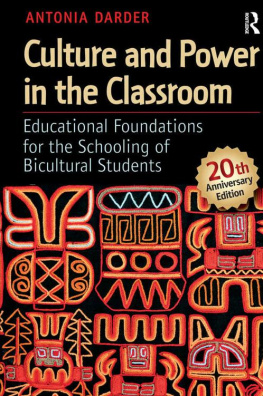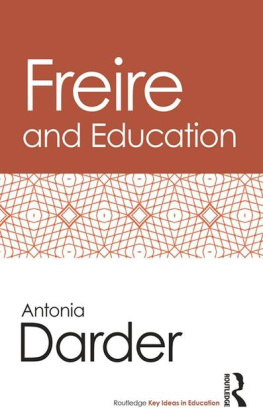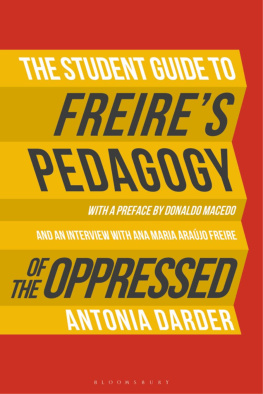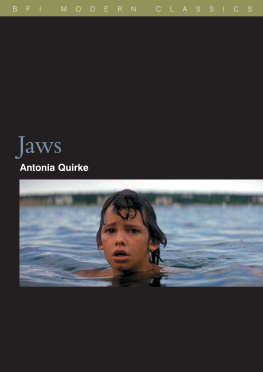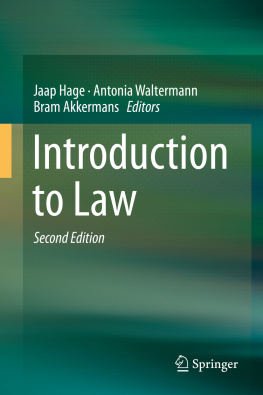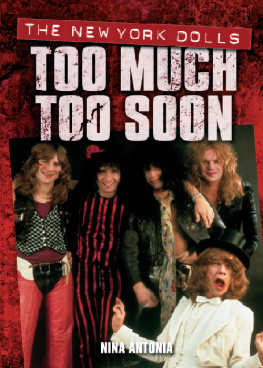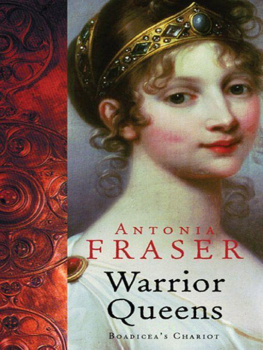Antonia Darder - Culture and Power in the Classroom (Series in Critical Narrative)
Here you can read online Antonia Darder - Culture and Power in the Classroom (Series in Critical Narrative) full text of the book (entire story) in english for free. Download pdf and epub, get meaning, cover and reviews about this ebook. year: 2015, publisher: Taylor and Francis, genre: Politics. Description of the work, (preface) as well as reviews are available. Best literature library LitArk.com created for fans of good reading and offers a wide selection of genres:
Romance novel
Science fiction
Adventure
Detective
Science
History
Home and family
Prose
Art
Politics
Computer
Non-fiction
Religion
Business
Children
Humor
Choose a favorite category and find really read worthwhile books. Enjoy immersion in the world of imagination, feel the emotions of the characters or learn something new for yourself, make an fascinating discovery.
- Book:Culture and Power in the Classroom (Series in Critical Narrative)
- Author:
- Publisher:Taylor and Francis
- Genre:
- Year:2015
- Rating:3 / 5
- Favourites:Add to favourites
- Your mark:
- 60
- 1
- 2
- 3
- 4
- 5
Culture and Power in the Classroom (Series in Critical Narrative): summary, description and annotation
We offer to read an annotation, description, summary or preface (depends on what the author of the book "Culture and Power in the Classroom (Series in Critical Narrative)" wrote himself). If you haven't found the necessary information about the book — write in the comments, we will try to find it.
Culture and Power in the Classroom (Series in Critical Narrative) — read online for free the complete book (whole text) full work
Below is the text of the book, divided by pages. System saving the place of the last page read, allows you to conveniently read the book "Culture and Power in the Classroom (Series in Critical Narrative)" online for free, without having to search again every time where you left off. Put a bookmark, and you can go to the page where you finished reading at any time.
Font size:
Interval:
Bookmark:
CULTURE AND POWER IN THE CLASSROOM
Series in Critical Narrative
Donaldo Macedo, Series Editor
University of Massachusetts Boston
Now in Print
The Hegemony of English
by Donaldo Macedo, Bessie Dendrinos, and
Panayota Gounari (2003)
Letters from Lexington: Reflections on Propaganda
New Updated Edition
by Noam Chomsky (2004)
Pedagogy of Indignation
by Paulo Freire (2004)
Howard Zinn on Democratic Education
by Howard Zinn, with Donaldo Macedo (2005)
How Children Learn: Getting Beyond the Deficit Myth
by Terese Fayden (2005)
The Globalization of Racism
edited by Donaldo Macedo and Panayota Gounari (2006)
Daring to Dream: Toward a Pedagogy of the Unfinished
by Paulo Freire (2007)
Class in Culture
by Teresa L. Ebert and Masud Zavarzadeh (2008)
Dear Paulo: Letters from Those Who Dare Teach
by Sonia Nieto (2008)
Uncommon Sense from the Writings of Howard Zinn (2008) Paulo Freire and the Curriculum
by Georgios Grollios (2009)
Freedom at Work: Language, Professional, and Intellectual Development in Schools
by Mara E. Torres-Guzmn with Ruth Swinney (2009)
The Latinization of U.S. Schools: Successful Teaching and Learning in Shifting Cultural Contexts
by Jason G. Irizarry (2011)
Culture and Power in the Classroom: Educational Foundations for the Schooling of Bicultural Students
by Antonia Darder (2011)
THE TWENTIETH ANNIVERSARY EDITION
Educational Foundations for the Schooling of Bicultural Students
Antonia Darder
With a Foreword by Sonia Nieto

First published 2012 by Paradigm Publishers
Published 2016 by Routledge
2 Park Square, Milton Park, Abingdon, Oxon OX14 4RN
711 Third Avenue, New York, NY 10017, USA
Routledge is an imprint of the Taylor & Francis Group, an informa business
Copyright 2012, Taylor & Francis.
All rights reserved. No part of this book may be reprinted or reproduced or utilised in any form or by any electronic, mechanical, or other means, now known or hereafter invented, including photocopying and recording, or in any information storage or retrieval system, without permission in writing from the publishers.
Notice:
Product or corporate names may be trademarks or registered trademarks, and are used only for identification and explanation without intent to infringe.
Library of Congress Cataloging-in-Publication Data
Darder, Antonia.
Culture and power in the classroom : educational foundations for the schooling of bicultural students / Antonia Darder ; with a foreword by Sonia Nieto. The twentieth anniversary ed.
p. cm. (Series in critical narrative)
Includes bibliographical references and index.
ISBN 978-1-61205-069-0 (hardback : alk. paper) ISBN 978-1-61205-070-6 (pbk. : alk. paper)
1. Multicultural educationUnited States. 2. Educational sociologyUnited States. 3. Educational equalizationUnited States. 4. Teaching. I. Title.
LC1099.3.D37 2012
370.1170973dc23
2011022075
Designed and Typeset by Straight Creek Bookmakers.
ISBN 13:978-1-61205-069-0 (hbk)
ISBN 13:978-1-61205-070-6 (pbk)
This book is dedicated to Mr. Horace Viditoe, A. P. Gonzalez, Carol Brunson Day, and Barbara Richardsonbrilliant educators of color who believed in me when I could barely believe in myself.
| , by Donaldo Macedo |
| by Sonia Nieto |
| by Paulo Freire (original preface, 1991) |
Unapologetic Biculturalism
Beyond the Politics of Tolerance
Donaldo Macedo
Series Editor, University of MassachusettsBoston
At a 1987 CONFERENCE ON THE WORKS OF PAULO FREIRE, THE PRESENCE OF FREIRE himself reenergized the spirit and the vision of the progressive educators gathered that day at the University of California, Irvine, all of whom were adherents to Freires unshakable belief that no matter how difficult, change is possible. one voice in particular called out to me as it passionately and fearlessly denounced patriarchy and white supremacythe voice of Antonia Darder. I still vividly remember sensing her bottled-up energy, her long-submerged voice that was fighting its way to the surface.
Paulos presence at the conference brought renewed to hope to progressive educators such as Tom Wilson, Henry Giroux, Peter McLaren, Antonia Darder, Anaida Colon-Muniz, and me, a far-flung group that had coalesced around the conviction that it was imperative to fight against the right-wing attacks that were shaping the educational reform debate in the 1980s. As Antonia Darder wrote about that time, liberal influences [were being] suffocated by a politically mean-spirited neo-conservative movement, which began to gain momentum and prominence in the 1980s through the support of former Secretary of Education William Bennett. This reactionary movement was fast appropriating the educational narrative with its call for the common utilization of behavioral objectives and, more recently, standardization of knowledge as a framework for the curriculum development and implementation. This call constituted a spirited defense of Western tradition as exemplified by Allan Blooms book, The Closing of the American Mind, which had tapped the [conservative] and the elitists collective nerve (Aronowitz & Giroux, 1988, p. 177).
Although Darders unrelenting interrogations during her interventions at the Freire conference made some people uncomfortable, her comments presaged the current obscene Arizonafication of America, as Latinas/os and other non-white ethnic groups are subjected to incessant attacks by ultra-right conservative politicians and talking heads who blame the ills of U.S. societyfrom rising crime rates to economic insecurityon the presence of undocumented immigrants. They conveniently overlook the fact that these same immigrants constitute the backbone of our economy in the service and agricultural sectors from California to the Carolinas. By stirring peoples fear and normalizing xenophobia, the antiimmigrant movement made racial profiling legal in Arizona, and twenty-three other states are moving quickly to pass similarly draconian laws to contain the invasion of what former presidential candidate David Duke referred to as hordes of dusty third world peoples. Duke went on to say that with each passing hour our economic well-being, cultural heritage, freedom, and racial roots are being battered into oblivion (cited in Macedo & Bartolom, 1999, p. 12).
Antonia Darders new edition of Culture and Power in the Classroom is particularly timely given the insidious xenophobia that is now shaping our society and the efforts underway at many U.S. higher education institutions to close down ethnic studies. Meanwhile, the penal system hustles to build more jails to house those who have been ethnically profiled and excluded. This book provides educators with critical counterhegemonic tools to deconstruct the dominant ideologys defense of the tradition espoused by Allan Bloom, E. D. Hirsch, and other conservative scholars. In a pointed attack on multicultural education, they argue that multicultural education should be abandoned in favor of a reemphasis on content that is rooted in our common cultural background and knowledge. The brilliance of Darders proposals lies in her courage to indict both conservative and liberal educators who fail to recognize that the common culture considers the term descriptive rather than anthropological and political. As Aronowitz and Giroux (1988), write, [The common cultures] meaning is fixed in the past, and its essence is that it provides the public with a common referent for communication and exchange (p. 187). Darder astutely problematizes the notion of common culture as nothing less than a veiled information-banking model based on a selective selection of the features of Western cultures that dismisses the notion that culture has any determinate relation to the practices of power and politics or is largely defined as part of an ongoing struggle to move history, experience, knowledge, and the meaning of everyday life in ones own terms (Aronowitz & Giroux, 1988, p. 186). Her critique goes beyond a denunciation of the dominant fossilized encyclopedia of mainstream pedagogy that selectively leaves out other important cultural facts. She is equally critical of liberal multicultural education that, for all its promises, ends up celebrating an equally fossilized pedagogy that is devoid of any discussion of power relations that show how ideology is present in capitalist social relationships based on class interests that in practice negate autonomy, despite adherence to the doctrine of individualism [where]... capitalisms individualist ideological underpinnings simultaneously emphasize and deny the individuals subjectivity. Thus, Darder correctly interrogates the expansion of so-called multicultural education, with its rapid growth of textbooks ostensibly designed to teach racial and cultural tolerance. what these educational texts in fact do is hide the asymmetrical distribution of power and cultural capital through a form of paternalism that promises a dose of tolerance to the otherin other words, I will tolerate you. Missing from this message is a sense of mutual respect and even racial and cultural solidarity. As David Theo Goldberg (1993) argues, tolerance presupposes that its object is morally repugnant, that it really needs to be reformed, that is, altered (p. 6.).
Next pageFont size:
Interval:
Bookmark:
Similar books «Culture and Power in the Classroom (Series in Critical Narrative)»
Look at similar books to Culture and Power in the Classroom (Series in Critical Narrative). We have selected literature similar in name and meaning in the hope of providing readers with more options to find new, interesting, not yet read works.
Discussion, reviews of the book Culture and Power in the Classroom (Series in Critical Narrative) and just readers' own opinions. Leave your comments, write what you think about the work, its meaning or the main characters. Specify what exactly you liked and what you didn't like, and why you think so.

